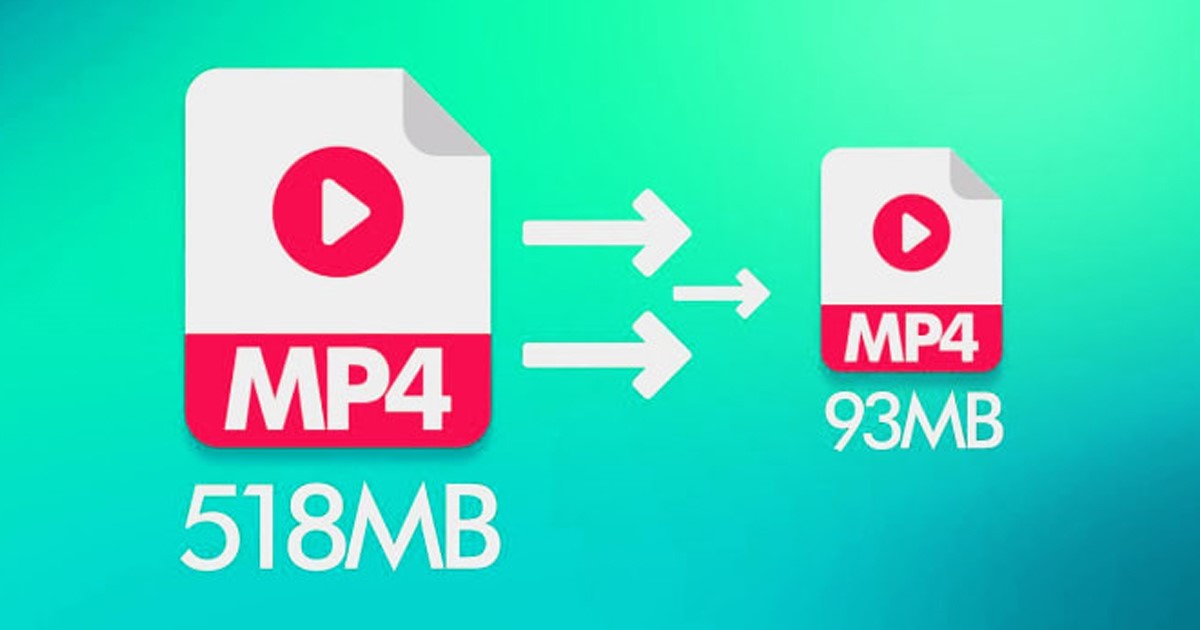What is Emgality?
If you have certain types of headaches, your doctor may recommend Emgality for you. Emgality is a prescription drug. It’s used in adults to:
- treat episodic cluster headaches
- prevent migraine headaches
If you’d like more information about these conditions, see the “What’s Emgality used for?” section below.
The active drug in Emgality is galcanezumab. It isn’t available in a generic form.
Emgality is a solution that you’ll take as an injection. It comes as a prefilled syringe or as a prefilled pen. Once your doctor shows you how, you can give Emgality injections to yourself.
Read on to learn about Emgality’s possible side effects, cost, and more.
What are Emgality’s side effects?
Like most drugs, Emgality may cause mild or serious side effects. The lists below describe some of the more common side effects that Emgality may cause. These lists don’t include all possible side effects.
Your doctor or pharmacist can tell you more about the potential side effects of Emgality. They can also suggest ways to help reduce these effects.
Mild side effects
Here’s a short list of some of the mild side effects that Emgality can cause. To learn about other mild side effects, talk with your doctor or pharmacist or read Emgality’s patient information.
Mild side effects of Emgality can include symptoms at the site where the drug is injected.* These can include:
- pain
- redness
- itchy skin
Mild side effects of many drugs may go away within a few days or a couple of weeks. But if they become bothersome, talk with your doctor or pharmacist.
* For more information about symptoms at the site of Emgality injections, see the “Side effect focus” section below.
Serious side effects
Serious side effects from Emgality can occur, but they aren’t common. If you have serious side effects from Emgality, call your doctor right away. But if you think you’re having a medical emergency, you should call 911 or your local emergency number.
Serious side effects of Emgality can include allergic reaction, which is explained below in “Side effect focus.”
Side effect focus
Learn more about some of the side effects that Emgality may cause.
Painful, red, or itchy skin after injection
You may have painful, red, or itchy skin at your injection site after giving yourself a dose of Emgality. This side effect was common in clinical studies of the drug.
What might help
Here are a few suggestions that might help relieve this side effect:
- Don’t rub or massage the skin around the injection site. Doing so can make your symptoms worse.
- Apply a cold compress to your skin to help reduce the pain and swelling.
- Use over-the-counter (OTC) medications, such as ibuprofen (Advil) or acetaminophen (Tylenol), to help lessen the pain.
- Use OTC antihistamines, such as diphenhydramine (Benadryl), or hydrocortisone cream to help relieve the itching.
- Rotate the sites where you inject the drug. Don’t inject Emgality into the same area of skin for every dose.
Talk with your doctor if you have concerns about any pain, redness, or swelling you experience after using Emgality.
Allergic reaction
Some people may have an allergic reaction to Emgality. This can happen right away, or it can happen several days after the drug is taken.
Symptoms of a mild allergic reaction can include:
- rash
- itchiness
- flushing (warmth, swelling, or redness in your skin)
A more severe allergic reaction is rare but possible. Symptoms of a severe allergic reaction can include swelling under your skin, typically in your eyelids, lips, hands, or feet. They can also include swelling of your tongue, mouth, or throat, which can cause trouble breathing.
Call your doctor right away if you have an allergic reaction to Emgality. But if you think you’re having a medical emergency, call 911 or your local emergency number.
What are some frequently asked questions about Emgality?
Find answers to some commonly asked questions about Emgality.
How does Emgality compare with Aimovig?
Both Emgality and Aimovig are injections used to help prevent migraine headaches in adults. Emgality can also be prescribed to treat episodic cluster headaches. But Aimovig isn’t used for this purpose.
Emgality and Aimovig each contain a different active drug. Emgality contains galcanezumab, while Aimovig contains erenumab.
If you have questions about which drug might be better for your condition, talk with your doctor.
How does Emgality work?
Emgality works by blocking the action of a protein in your body called calcitonin gene-related peptide (CGRP). CGRP can play a role in causing migraine and cluster headaches.
By stopping CGRP from working, Emgality helps prevent migraine headaches and treat cluster headaches.
If you’d like to know more about how Emgality works, talk with your doctor.
Will Emgality cure my migraine headaches?
No, Emgality won’t cure your migraine headaches. There isn’t a cure for migraine at this time. But Emgality can help prevent migraine for as long as you keep taking it.
If you have questions about using Emgality long term, talk with your doctor.
What does Emgality cost?
Costs of prescription drugs can vary depending on many factors. These factors include what your insurance plan covers and which pharmacy you use. To find current prices for Emgality syringes (or other forms) in your area, visit GoodRx.com.
If you have questions about how to pay for your prescription, talk with your doctor or pharmacist. You can also visit the Emgality manufacturers’ website to see if they have any support options.
What’s Emgality used for?
Emgality is prescribed for these uses in adults:
- Preventing migraine headaches. With migraine, you usually have severe headaches along with other symptoms. These other symptoms may include nausea and sensitivity to sound or light. Migraine episodes can last for several hours to several days.
- Treating episodic cluster headaches. With cluster headaches, you have cycles of sudden, painful headaches followed by periods with no headache. With episodic cluster headaches, your headache cycles happen regularly for up to 1 year. Then, your headache-free period lasts for up to 1 year before your headache cycle starts again.
Emgality works by blocking the activity of a protein in your body called calcitonin gene-related peptide. This protein plays a role in both migraine and cluster headaches.
How is Emgality taken?
Your doctor will explain how you should take Emgality. They’ll also explain how much to take and how often. Be sure to follow your doctor’s instructions.
Below are some commonly used dosages, but always take the dosage your doctor prescribes.
Taking Emgality
Emgality comes as a solution inside prefilled syringes and pens. Your doctor can recommend the form that’s best for you.
You’ll inject Emgality under your skin. But before you administer a dose, your doctor or healthcare provider will show you how to do so.
Emgality should be injected under the skin in one of the following locations:
- your abdomen (belly)
- your thigh
- the back of your upper arm
- your buttocks
After your first dose, you can give yourself injections of Emgality at home. Or, you might have a caregiver or family member give you the injections instead.
Dosage
The dosage of Emgality you’ll take depends on the condition you’re using it to treat.
If you’re using Emgality to prevent migraine headaches, the usual first dose of Emgality is two injections. After that, you’ll likely give yourself just one injection per month.
If you’re using Emgality to treat episodic cluster headaches, you’ll likely use three injections for every dose. Typically, your first dose is given when your cycle of cluster headaches begins. Then, you’ll keep taking three injections once per month until your cluster cycle ends.
Questions about taking Emgality
Below are a few questions that are commonly asked about taking Emgality.
- What if I miss a dose of Emgality? If you miss a dose of Emgality, inject your missed dose as soon as you remember. Your next dose should be taken 1 month from the date you took the missed dose. For example, if you took your missed dose on the 5th of the month, you should reschedule your upcoming doses to the 5th of each month. Because Emgality is typically taken once per month, your future doses should be rescheduled for that same date. If you have questions about a missed dose, talk with your doctor.
- Will I need to use Emgality long term? As long as Emgality keeps working for you, your doctor will likely recommend that you continue taking it long term.
- Should I take Emgality with food? You can take Emgality with or without food.
- How long does Emgality take to work? It may take several weeks for you to notice your condition improving.
What should be considered before taking Emgality?
If you’re considering taking Emgality, it’s important to talk with your doctor about your overall health and any medical conditions you may have. You should also consider the following before taking Emgality.
Interactions
Using medications, vaccines, foods, or other things alongside a certain drug can affect how the drug works. These effects are called interactions.
Because of the way Emgality works in your body, it isn’t known to interact with any other drugs, supplements, or foods.
But before taking Emgality, be sure to tell your doctor about all medications you take (including prescription and over-the-counter types). Also, describe any vitamins, herbs, or supplements you use. Your doctor or pharmacist can tell you about any interactions these items may cause with Emgality.
Other warnings
Emgality may not be right for you if you have certain medical conditions or other factors that affect your health. Talk with your doctor about your health history before you take Emgality. Factors to consider include allergic reaction, which is described below.
Allergic reaction. If you’ve had an allergic reaction to Emgality or any of its ingredients, you shouldn’t take this drug. Ask your doctor about which other medications are better options for you.
Use with alcohol
Drinking alcohol while taking Emgality isn’t known to cause any interactions or problems.
But it’s important to know whether or not alcohol triggers your episodes of migraine or cluster headaches. If it does, you’ll probably want to avoid drinking alcohol while you’re taking Emgality.
If you have questions about the amount of alcohol that’s safe for you to drink while taking this drug, talk with your doctor.
Pregnancy and breastfeeding
There isn’t enough information available about the effects of Emgality when used during pregnancy or while breastfeeding. It’s not known if the drug can cause harm to an unborn baby or pass into human breast milk.
If you have questions about the risks of using Emgality while you’re pregnant or breastfeeding, talk with your doctor.
What should be done in case of overdose?
Don’t take more Emgality than your doctor prescribes. Using more than this can lead to serious side effects.
What to do in case you take too much Emgality
Call your doctor if you think you’ve taken too much Emgality. You can also call 800-222-1222 to reach the American Association of Poison Control Centers, or you can use their online resource. But if you have severe symptoms, immediately call 911 (or your local emergency number) or go to the nearest emergency room.
Ask your doctor
To learn more about whether Emgality is the right treatment for your condition, talk with your doctor or pharmacist.
You may have questions for your doctor about other ways to treat cluster headaches or prevent migraine headaches. Here are a few resources with information on other options:
- How to Avoid a Migraine Before it Happens
- 10 Natural Ways to Reduce Migraine Symptoms
- How to Treat Cluster Headaches Yourself Naturally
You may also want to ask your doctor about Emgality. Here’s a list of questions to help you get started:
- Should I keep using other medications to help prevent or treat migraine headaches if I take Emgality?
- How is Emgality different from other medications that help prevent migraine headaches?
- Will Emgality cure my migraine headaches?
- Should I keep using Emgality after my cluster headaches have stopped?
To learn more about treating and managing migraine, sign up for our dedicated newsletter here.
Ask a pharmacist
Q:
Can I use Emgality to treat migraine symptoms after they’ve already started?
Anonymous patient
A:
Emgality isn’t meant to treat migraine symptoms once they’ve already started. Instead, Emgality is approved for preventing migraine headaches from happening.
Emgality works by blocking the action of a protein called calcitonin gene-related peptide (CGRP). CGRP can play a role in causing migraine headaches. By stopping CGRP from working, Emgality helps prevent migraine headaches. But the drug isn’t likely to relieve symptoms once you already have a migraine headache.
For more information about treating the symptoms of migraine headaches once they start, talk with your doctor. They’ll be able to suggest the best treatment based on your overall health. They may recommend over-the-counter medications, such as acetaminophen (Tylenol) or naproxen (Aleve). They may also suggest some non-medication treatments, such as applying an ice pack or staying in a quiet room until your symptoms improve.
You can also refer to this article for ways to handle migraine symptoms that have already started.
Alex Brewer, PharmD, MBA
Answers represent the opinions of our medical experts. All content is strictly informational and should not be considered medical advice.

Disclaimer: Healthline has made every effort to make certain that all information is factually correct, comprehensive, and up to date. However, this article should not be used as a substitute for the knowledge and expertise of a licensed healthcare professional. You should always consult your doctor or other healthcare professional before taking any medication. The drug information contained herein is subject to change and is not intended to cover all possible uses, directions, precautions, warnings, drug interactions, allergic reactions, or adverse effects. The absence of warnings or other information for a given drug does not indicate that the drug or drug combination is safe, effective, or appropriate for all patients or all specific uses.














